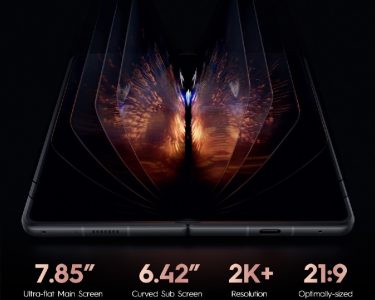The chipsets that Samsung makes on its own are one of the great strengths that the Korean manufacturer has in the mobile phone world – as it gives the company a greater sense of control over the hardware. Now, Samsung has actually launched a brand new flagship chipset – featuring with the name of Exynos 9825.
The Exynos 9825 does not just have a similar name to the Exynos 9820 that we saw in this year’s Galaxy S10 devices. Both the processors feature with an Octa-core CPU design that features with two custom Mongoose cores, two Cortex-A75 cores and finally, four Cortex-A55 cores.
There are also some other features that both these processors share – including Mali-G76 MP12 GPU, an NPU for the sake of machine learning tasks, Cat-20 LTE-A Pro connectivity, LPDDR4X support, UFS 3.0 storage compatibility and finally, 8K video recording.
However, the one major difference both these processors have is the way they are manufactured. The latest Exynos 9825 is built on a 7nm EUV process, while the 9820 was built on 8nm LPP finFET process.
Must Read: Fancy winning the TCL P8S UHD Android TV?
What this significantly means is that since a smaller manufacturing process generally refers to a better battery life – we can expect the Note 10 to be a lot more efficient in terms of battery when comparing with the S10 (if the flagship comes with the latest chipset from Samsung). However, EUV is also the foundation for future manufacturing processes. And so the Exynos 9825 is without doubt a key product for the Korean manufacturer. It has also been noted by the company itself that the two Cortex A-75 cores which have been talked about in the new chipset will have the capabilities to offer higher clock speeds – and so, we can actually expect there to be minor gains in the performance department too.
The revealing process for the chipset comes just a few hours before Samsung officially launches the Galaxy Note 10 series. Samsung generally makes use of Snapdragon chipsets for its flagship devices based in the US along with several other markets – while the Exynos processors are used for a more global scale.
It is not exactly clear right now whether or not Samsung will offer the Exynos 9825 in any one of the Galaxy Note 10 models. However, if the company uses the Snapdragon 855 Plus – then it would make all the sense in the world for it to use the Exynos 9825 too.




